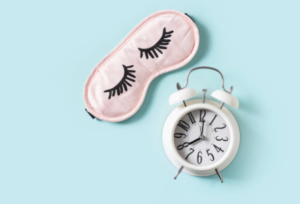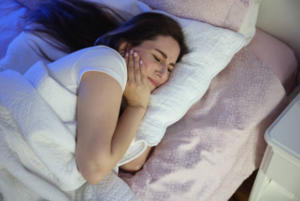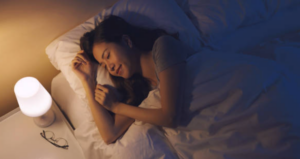Innovative Wellness Techniques for Better Sleep

In today’s fast-paced world, sleep often takes a backseat to our busy schedules and endless to-do lists. Yet, quality sleep is essential for our overall health and well-being, playing a crucial role in everything from cognitive function and mood regulation to immune health and skin rejuvenation. As we delve into the science of sleep hygiene, we uncover innovative wellness techniques that go beyond conventional wisdom, offering holistic solutions for achieving better sleep and waking up refreshed, rejuvenated, and ready to tackle the day.
Sleep hygiene refers to a set of practices and habits that promote quality sleep and optimal sleep-wake cycles. From creating a conducive sleep environment to establishing consistent bedtime routines, sleep hygiene encompasses various factors that influence our ability to fall asleep, stay asleep, and wake up feeling rested.
The Importance of Circadian Rhythms
Our bodies operate on a natural internal clock known as the circadian rhythm, which regulates our sleep-wake cycles and influences various physiological processes. This internal clock is synchronized with environmental cues such as light and darkness, helping to regulate our sleep patterns and hormone secretion throughout the day.
Disruptions to our circadian rhythm, such as irregular sleep schedules, shift work, or exposure to artificial light at night, can disrupt our body’s natural sleep-wake cycle. This can lead to difficulties falling asleep, staying asleep, and waking up feeling rested. By aligning our sleep habits with our circadian rhythm, we can promote better sleep quality and overall health.
Creating a Sleep-Conducive Environment
Optimizing your sleep environment is essential for promoting restful sleep. Several factors contribute to a sleep-conducive environment, including:
- Temperature: Keep your bedroom cool and comfortable, as cooler temperatures are generally more conducive to sleep. Consider using a fan or adjusting your thermostat to create an ideal sleeping environment.
- Noise Levels: Minimize noise disturbances that may disrupt your sleep, such as traffic noise, household sounds, or snoring. Consider using earplugs or white noise machines to block out unwanted noise and promote a quieter sleep environment.
- Lighting: Create a dark and relaxing sleep environment by using blackout curtains or eye masks to block out light. Exposure to artificial light, especially blue light from electronic devices, can interfere with your body’s production of melatonin, a hormone that regulates sleep.
- Comfort: Invest in a comfortable mattress and pillows that provide adequate support for your body. Choose bedding and sleepwear made from breathable, moisture-wicking fabrics to help regulate your body temperature and promote a comfortable sleep environment.
By optimizing these factors, you can create an ideal sleep environment that promotes relaxation and prepares your body and mind for restful sleep.

Establishing a Bedtime Routine
Consistency is key when it comes to sleep, so establishing a regular bedtime routine can help signal to your body that it’s time to wind down and prepare for sleep. Your bedtime routine should incorporate relaxing activities that promote relaxation and reduce stress, such as:
- Reading a book or listening to calming music
- Practicing relaxation techniques like deep breathing or meditation
- Taking a warm bath or shower
- Engaging in gentle stretching exercises or bedtime yoga
- Avoiding stimulating activities like screen time, intense exercise, or work-related tasks close to bedtime
By establishing a consistent bedtime routine, you can create a sense of predictability and stability that helps prepare your body and mind for sleep.
What you eat and drink can also impact your sleep quality. Certain foods and beverages can disrupt your sleep patterns or cause discomfort that interferes with your ability to fall asleep or stay asleep. To promote better sleep, consider the following tips:
- Avoid consuming heavy, rich, or spicy meals close to bedtime, as these can cause indigestion or heartburn that may disrupt your sleep.
- Limit your intake of caffeine and alcohol, especially in the hours leading up to bedtime. Both substances can interfere with your sleep patterns and cause nighttime awakenings.
- Choose light, easily digestible snacks if you’re hungry before bed, such as a small piece of fruit, a handful of nuts, or a cup of herbal tea.
By being mindful of your eating and drinking habits, you can promote better digestion, reduce discomfort, and support your body’s natural sleep-wake cycle.
Harnessing the Power of Technology
In today’s digital age, technology offers a wide array of tools and resources to help us optimize our sleep hygiene and achieve better sleep. From wearable devices to smartphone apps and smart home gadgets, innovative technologies can provide valuable insights into our sleep patterns, create a sleep-conducive environment, and support our overall well-being.
Wearable Sleep Trackers: Wearable devices, such as smartwatches and fitness trackers, equipped with sleep tracking capabilities, offer a convenient way to monitor your sleep patterns and gain insights into your sleep quality. These devices use sensors to track movement, heart rate, and other physiological metrics during sleep, providing detailed information about your sleep stages, duration, and efficiency. By analyzing this data over time, you can identify patterns, trends, and potential factors affecting your sleep quality, empowering you to make informed adjustments to your sleep hygiene routine.
Smartphone Apps for Sleep Monitoring: There is a plethora of smartphone apps available that can help you monitor and improve your sleep quality. These apps typically use the built-in sensors of your smartphone to track your movement and detect sleep cycles, providing comprehensive sleep analysis and personalized recommendations for enhancing your sleep hygiene. Many apps also offer features such as sleep soundscapes, guided meditation sessions, and relaxation exercises to help you unwind and prepare for sleep. Additionally, some apps integrate with wearable devices or smart home gadgets to provide a seamless sleep tracking experience across multiple devices.
Smart Home Devices for Sleep Optimization: Smart home gadgets can play a significant role in creating a sleep-conducive environment and promoting better sleep. For example, smart lights equipped with features like adjustable brightness and color temperature can mimic natural sunlight patterns, helping regulate your circadian rhythm and promote healthy sleep-wake cycles. Similarly, smart thermostats can regulate room temperature throughout the night, ensuring optimal sleeping conditions for enhanced comfort and restfulness. By leveraging these smart home technologies, you can customize your sleep environment to suit your preferences and maximize your chances of achieving restorative sleep.
White Noise Machines and Sleep Soundscapes: White noise machines and sleep soundscapes can mask disruptive noises and create a soothing auditory environment conducive to sleep. These devices produce ambient sounds such as raindrops, ocean waves, or gentle music, which can help drown out external noise distractions and promote relaxation. Many white noise machines also offer customizable sound options and adjustable volume settings, allowing you to tailor the auditory experience to your individual preferences. Additionally, some smartphone apps and smart speakers feature built-in sleep soundscapes, providing a convenient and portable solution for enhancing your sleep environment wherever you go.
Digital Sleep Coaching Platforms: Digital sleep coaching platforms offer personalized guidance and support for improving sleep hygiene and overcoming sleep-related challenges. These platforms typically use a combination of sleep tracking data, behavioral analysis, and expert guidance to develop customized sleep improvement plans tailored to your specific needs and goals. Through interactive tools, educational resources, and ongoing support from sleep experts, these platforms empower you to make meaningful lifestyle changes and establish healthier sleep habits over time. Whether you’re struggling with insomnia, jet lag, or general sleep disturbances, digital sleep coaching platforms offer a comprehensive solution for optimizing your sleep health and well-being.

Exploring Herbal Remedies and Supplements
In addition to lifestyle changes and environmental adjustments, herbal remedies and supplements can play a complementary role in promoting better sleep and addressing sleep-related issues. From calming herbs to natural sleep aids, exploring these botanical solutions can offer a gentle and holistic approach to improving sleep quality and overall well-being.
- Valerian Root: Valerian root is one of the most well-known herbal remedies for promoting relaxation and improving sleep quality. It contains compounds that interact with the brain’s neurotransmitters, including gamma-aminobutyric acid (GABA), which helps regulate anxiety and promote feelings of calmness. Valerian root is often used to alleviate insomnia and other sleep disorders, with research suggesting that it may help reduce the time it takes to fall asleep and improve sleep quality. It is available in various forms, including capsules, tablets, teas, and tinctures.
- Chamomile: Chamomile is a gentle and soothing herb known for its calming properties and mild sedative effects. It contains compounds such as apigenin, which act on the central nervous system to promote relaxation and reduce anxiety. Chamomile tea is a popular bedtime beverage that can help calm the mind, soothe the digestive system, and prepare the body for sleep. Additionally, chamomile supplements are available in various forms, including capsules, liquid extracts, and essential oils, offering convenient options for incorporating this sleep-supportive herb into your nightly routine.
- Lavender: Lavender is renowned for its relaxing aroma and stress-relieving properties, making it a popular choice for promoting better sleep. Inhalation of lavender essential oil has been shown to reduce anxiety, improve mood, and enhance sleep quality by influencing neurotransmitter activity in the brain. You can enjoy the benefits of lavender by using essential oil diffusers, sachets, or pillow sprays in your bedroom, or by adding a few drops of lavender essential oil to your bath before bedtime. Additionally, lavender supplements and teas are available for those seeking alternative methods of incorporating this soothing herb into their sleep hygiene routine.
- Magnesium: Magnesium is an essential mineral that plays a vital role in various physiological processes, including muscle relaxation, stress regulation, and sleep promotion. Adequate magnesium levels have been associated with improved sleep quality and reduced insomnia symptoms. Magnesium supplements are available in different forms, including magnesium glycinate, magnesium citrate, and magnesium oxide, each with varying degrees of bioavailability and absorption. Incorporating magnesium-rich foods into your diet, such as leafy greens, nuts, seeds, and whole grains, can also help support your body’s magnesium levels and promote better sleep.
- Melatonin: Melatonin is a hormone produced by the pineal gland in the brain that regulates the sleep-wake cycle. Supplemental melatonin is commonly used to alleviate sleep disturbances, particularly jet lag and shift work-related sleep disorders. Melatonin supplements are available in various strengths and formulations, including immediate-release and extended-release formulations, allowing for customized dosing based on individual needs. It’s essential to use melatonin supplements responsibly and consult with a healthcare professional before incorporating them into your sleep hygiene routine, as improper use or dosage may disrupt your natural sleep-wake cycle.
- Passionflower: Passionflower is a gentle sedative herb that has been traditionally used to promote relaxation and alleviate insomnia. It contains compounds that interact with the brain’s neurotransmitters, including GABA, to induce feelings of calmness and tranquility. Passionflower supplements are available in various forms, including capsules, tablets, and tinctures, offering a convenient option for incorporating this sleep-supportive herb into your daily routine. Passionflower tea is another popular option for promoting relaxation and preparing the body for sleep, with its delicate flavor and soothing aroma making it an ideal bedtime beverage.

Incorporating innovative wellness techniques into your sleep hygiene routine can help you achieve better sleep and wake up feeling refreshed, rejuvenated, and ready to take on the day. By prioritizing practices that support your body’s natural sleep-wake cycles, creating a sleep-conducive environment, establishing consistent bedtime routines, and integrating mind-body practices, you can optimize your sleep quality and reap the countless benefits of restorative rest. Embrace the science of sleep hygiene and unlock the transformative power of quality sleep for improved health, well-being, and vitality.

